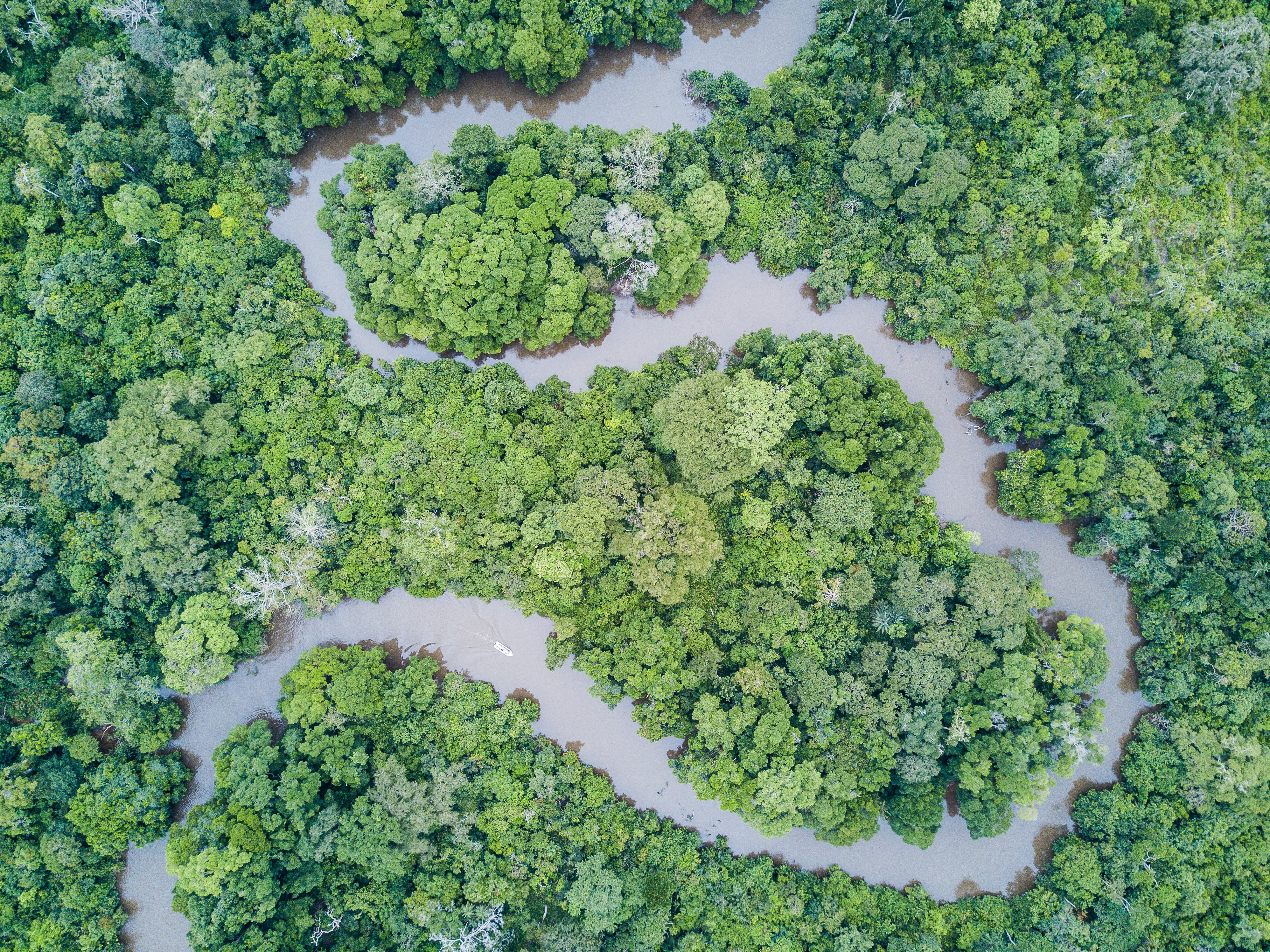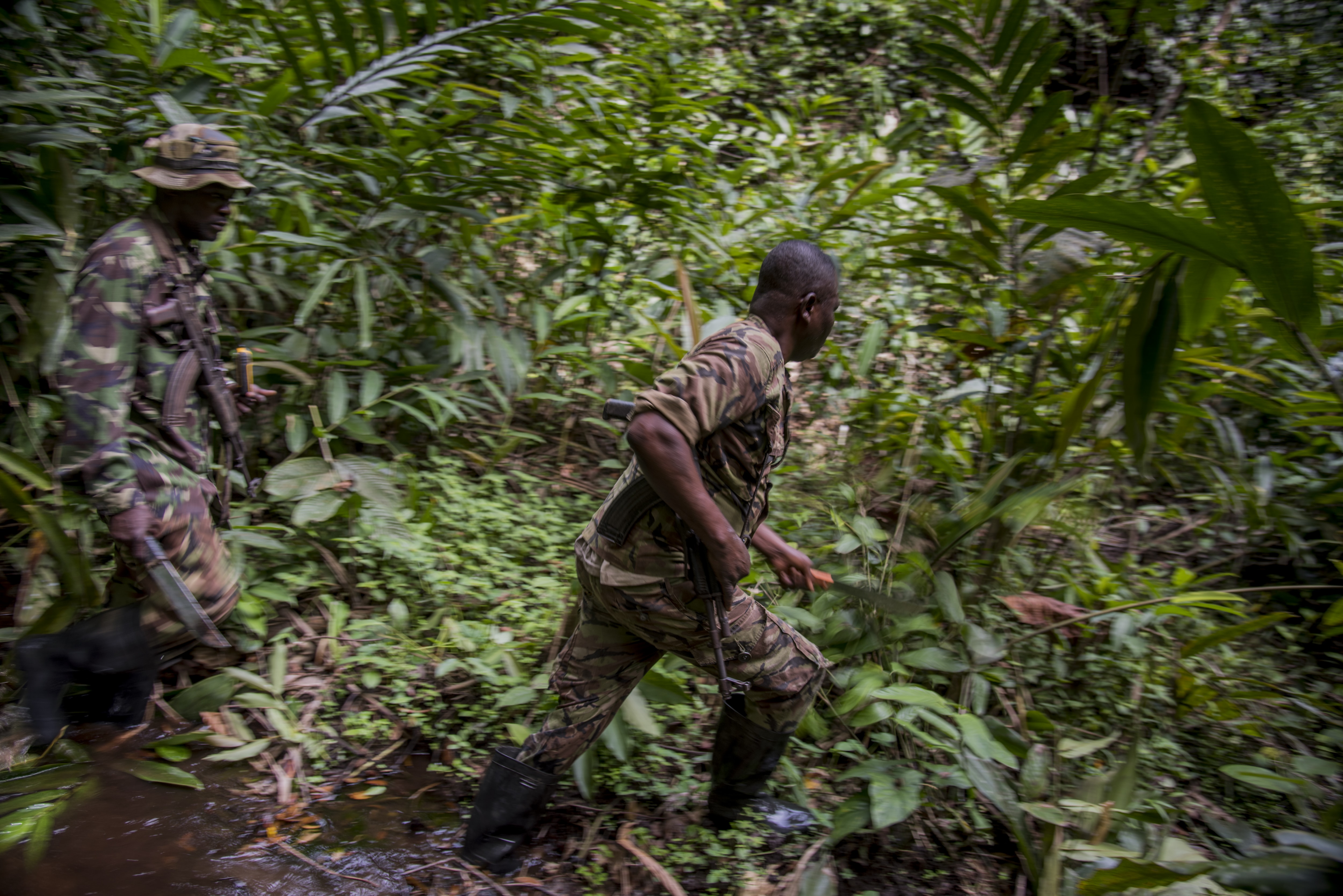Those at the frontline of anti-poaching and anti-trafficking across Africa face a multitude of complex challenges in their fight to save elephants. Corruption is rife, communities are impoverished, poachers often work in highly organised and well-armed gangs and violence against field rangers is a regular occurrence. For some, the challenges can seem endless.
In Odzala-Kokoua National Park in the Republic of Congo, managed by conservation group African Parks in partnership with the Congolese Government, one group of dedicated eco-guards is helping turn the park’s fortunes around despite facing very tough odds. To protect elephants in this seemingly impenetrable rainforest eco-guards, whose training is being funded by the Elephant Crisis Fund, battle difficult weather conditions, conduct patrols through dense swampy forests with no vehicle access and avoid being shot at by poachers. (An elephant poacher was recently apprehended and sentenced to two years in prison and ordered to pay a fine to the park for wounding an eco-guard in October 2017.)
Eco-guards, or field rangers as they’re also known, undergo intensive training based on physical health, literacy and referrals from traditional authorities on morality before being selected. They are invaluable in the fight against the growing threat of ivory poachers in Odzala-Kokoua, situated in the heart of the second-largest tropical rainforest in the world.
The park, which harbours a globally significant population of Western lowland gorillas, elusive forest elephants and more than 400 bird species, remains under constant threat from poachers. Logging companies have created easy access into the forest for illegal wildlife criminals and bush meat and ivory poaching is rampant. According to reports, the price of ivory in the Congo almost doubled in 2017, from 100,000cfa (US$181) to 175,000cfa (US$318) per kilo.
The only line of defence between the poachers and the valuable population of elephants is Odzala’s team of field rangers, whose training and equipment is crucially funded by the Elephant Crisis Fund.
Eco-guards based in the eastern sector of the park, which is rife with poaching by ruthless and professional armed gangs from as far as the DRC and Cameroon, have also received special ECF-funded firearm training to handle this new cross-border threat. In the past 18 months, under the watchful eye of an experienced Congolese sector chief, eco-guards there have arrested 16 DRC and 2 Cameroon citizens suspected of poaching, along with a Chinese national and a suspect from the Central African Republic.
Patrick Darcis, Odzala-Kokoua’s previous Park Director, says the eco-guards are the secret weapon in one day restoring Odzala to its former glory.
“The park is under pressure by poachers coming as far as Cameroon and DRC. It is a new development compared to the less violent local population of poachers and these new poachers are professional and ruthless. However, the great training for our eco-guards, sponsored by the Elephant Crisis Fund, to face this new situation makes us more determined than ever to protect the park.
It’s a very complex issue but I’m optimistic about the park’s future. We have about 6,500 forest elephants left in the park. We have the seed for recolonizing the population of forest elephants in neighbouring countries where populations have been decimated. It’s imperative we protect the forest elephants and gorillas of Odzala”

